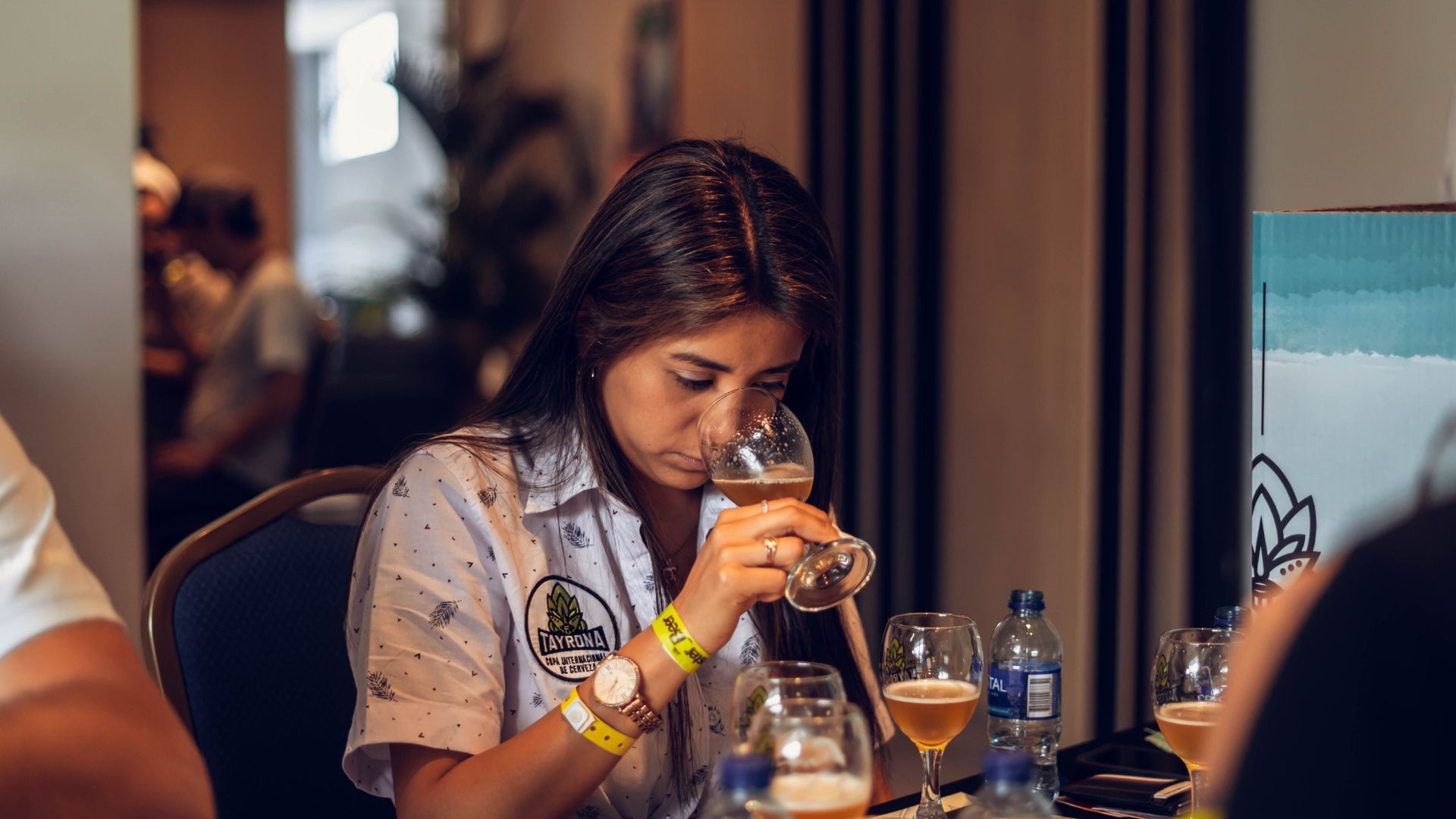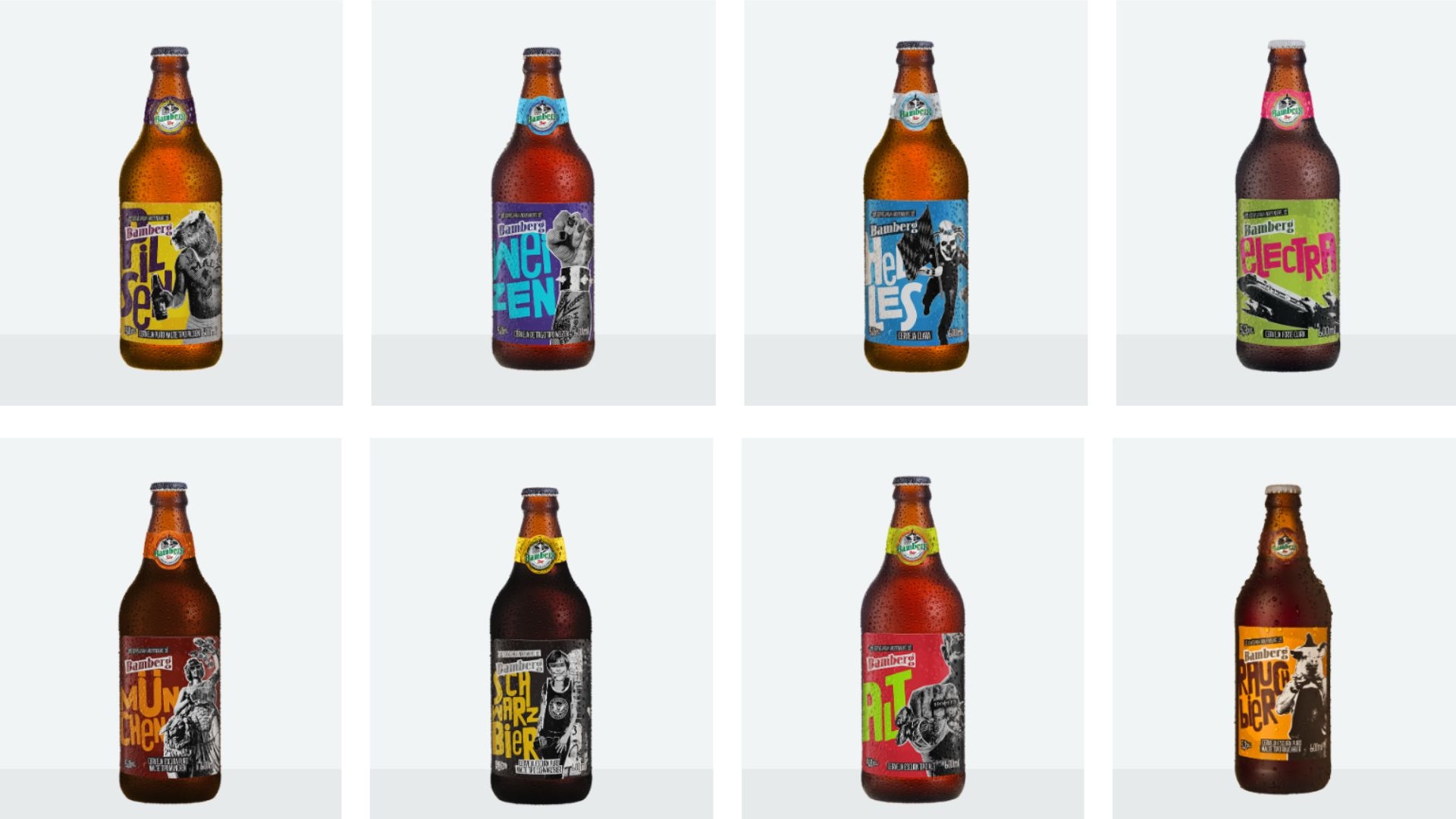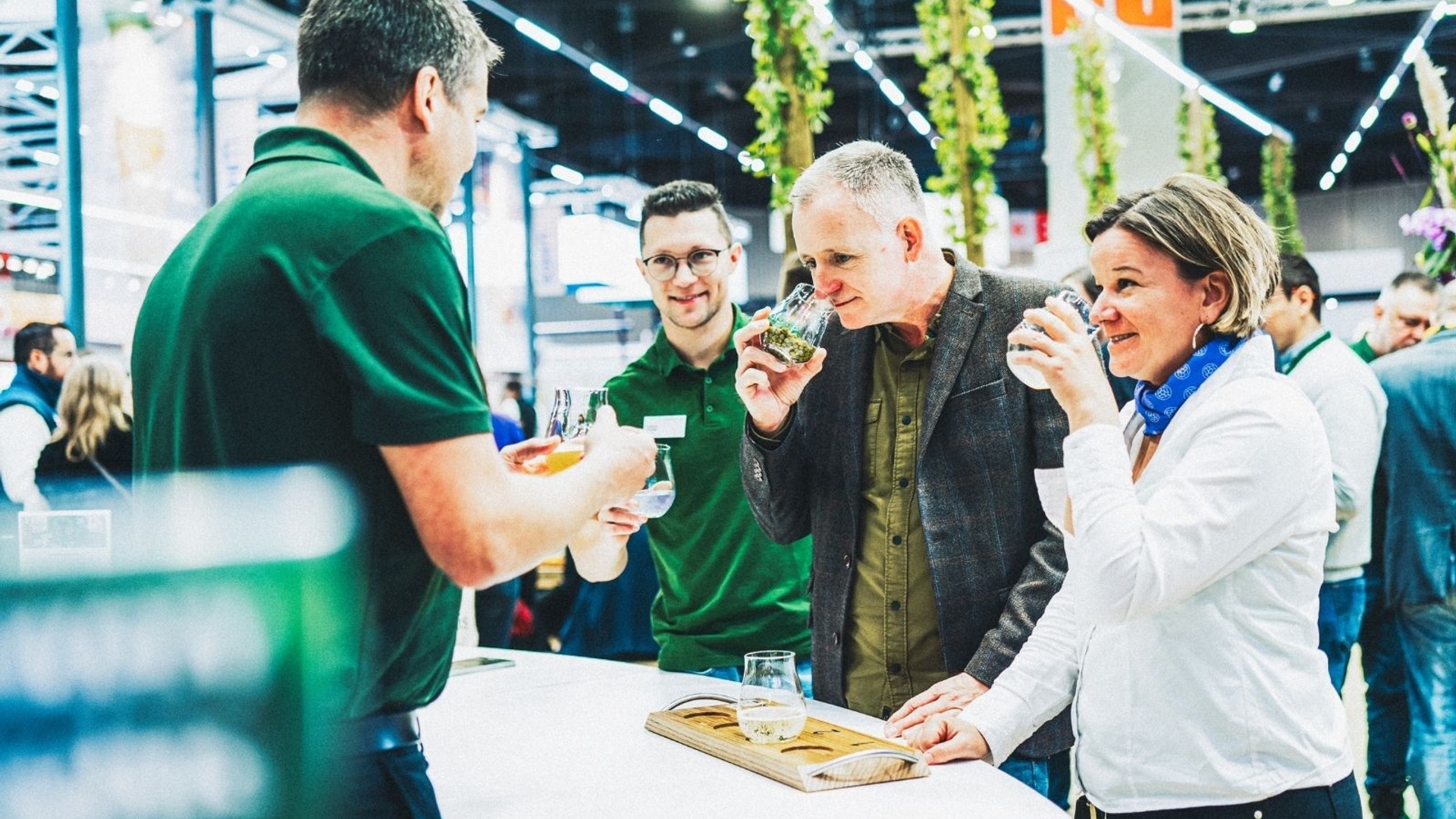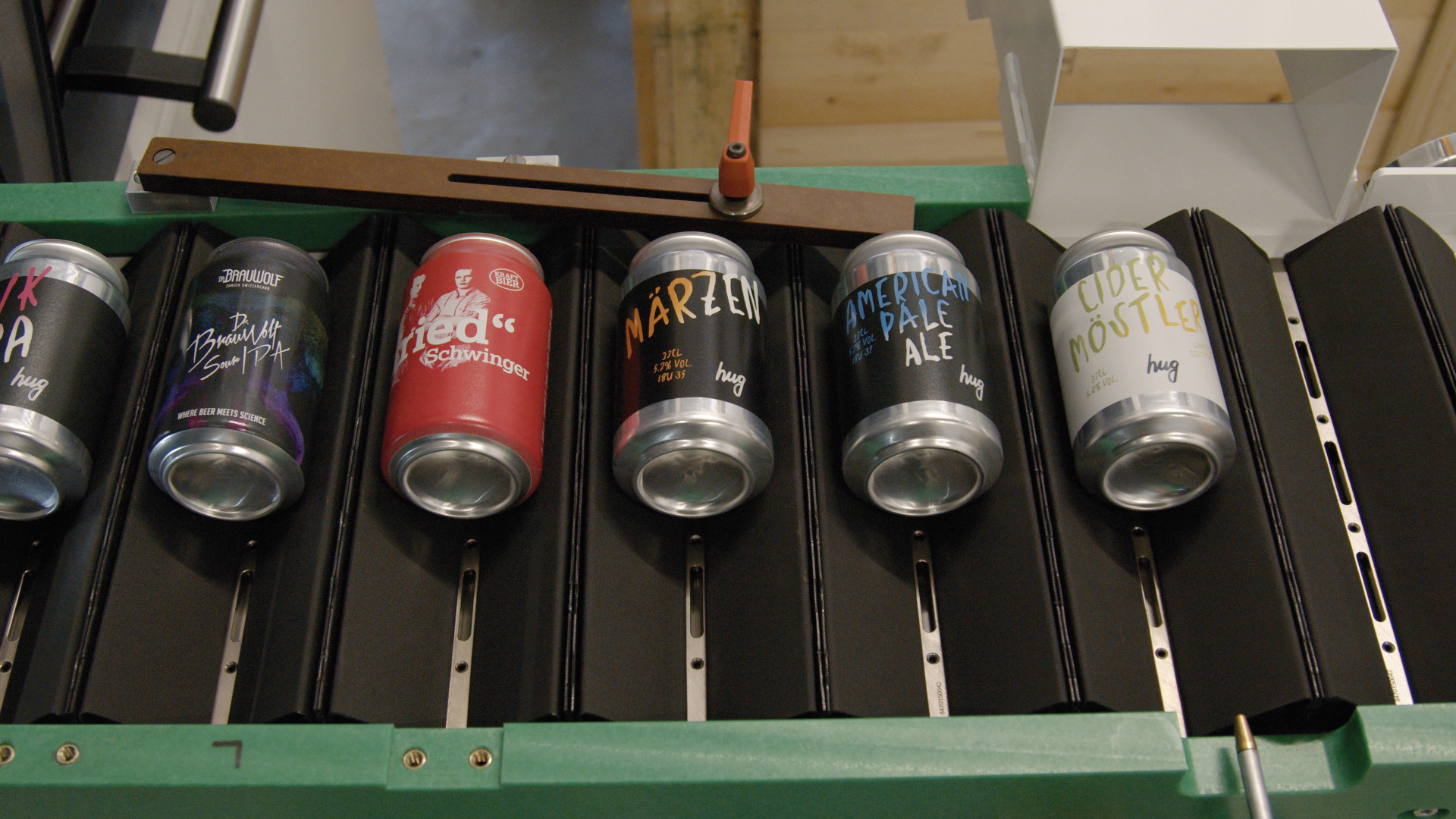A post by
Marek Kamiński
brewer and beer expert

What is the craft beer market like in Poland? Marek Kamiński, brewer and beer expert, gives an overview of the craft beer scene in his home country. From the brewing landscape to consumer habits and popular beer styles.
Released on 15/04/2025
A post by
Marek Kamiński
brewer and beer expert
Over the past fifteen years, Poland has witnessed a remarkable transformation in its beer industry, with the craft beer market gaining significant momentum. From a landscape once dominated by mass-produced lagers, the country has evolved into a vibrant hub for craft brewing, characterized by innovation, diversity, and a passionate consumer base. Let’s take an in-depth look at the current state of the craft beer market in Poland, addressing consumer habits, brewery dynamics, popular beer styles, and the industry's unique framework conditions.
Poland is home to almost 300 craft breweries, ranging from small, family-run operations to mid-sized enterprises producing several thousand hectoliters annually. On average, craft breweries in Poland produce between 1000 and 3000 hectoliters per year, with some larger players exceeding this range up to 20 and 30 thousand hectoliters. Despite their size, all craft breweries emphasize quality over quantity, focusing on limited editions and experimental batches. These breweries operate as independent businesses, many of them with a strong emphasis on local identity. Many craft brewers also operate own taprooms or brewery shops, serving as direct points of contact with their customers and providing an authentic craft beer experience. Lots of them profit from numerous multitap pubs spread most of the bigger towns and cities around the country.
Polish consumers have become increasingly adventurous in their beer choices. While traditional pale lagers still hold a significant market share, the demand for unique, flavorful, and artisanal beers has grown considerably. This shift is driven primarily by younger demographics who are keen to explore new flavors and support local producers. Craft beer festivals, beer tasting events, and brewery tours became popular activities, reflecting a cultural shift toward beer appreciation.
The Polish craft beer scene is remarkably diverse, with both traditional and modern styles capturing consumer interest. Among the most popular styles are Hazy IPAs, sour ales, as well as a growing number of session beer styles. Hazy, juicy, and aromatic IPAs seem to dominate the craft beer scene now, appealing to hop enthusiasts, but return to more bitter, clear West Coast IPAs is regaining momentum. Sour Ales are popular due to their refreshing and experimental nature. Pale Ales and Session IPAs appeal to those who crave for lighter, more approachable beers that still pack a flavorful punch. At the same time, seasonal releases further diversify the market, keeping consumers engaged year-round.
During the last couple of years breweries have invested in state-of-the-art equipment to enable more stable and complex brewing techniques, including barrel-aging programs and mixed fermentation processes. This adaptability allows Polish brewers to experiment with a wide variety of styles while maintaining consistent quality to meet high standards and consumer expectations.
Polish craft brewers draw inspiration from both global trends and local traditions. The American craft beer revolution has had a profound influence, particularly in the adoption of hoppy styles like IPAs. Meanwhile, the revival of Polish beer styles, such as Grodziskie and Porter Bałtycki (Baltic Porter), highlights a renewed interest in the country’s brewing heritage.
Both Grodziskie and Baltic Porter hold a special place in Polish beer culture. Grodziskie, often referred to as “Polish Champagne,” is a unique light smoked wheat beer that dates back centuries and has recently been revived by passionate brewers.
Baltic Porter, a rich and robust dark beer, is celebrated as one of Poland’s most iconic contributions to global beer styles, often recognized for its depth of flavor and historical significance. Baltic Porter Day is an annual celebration dedicated to one of Poland’s most iconic beer styles. Held every January, the event brings together breweries, beer enthusiasts, and connoisseurs to honor this dark, flavorful beer and its deep-rooted place in Polish brewing heritage. Both styles not only showcase Poland's brewing history but also connect modern consumers to traditional craftsmanship and Polish brewing heritage.
Collaborations with international breweries are common, bringing fresh perspectives and innovative techniques to the Polish market. Many brewers also experiment with unconventional ingredients, such as local fruits, herbs, and spices, to create uniquely Polish expressions of global styles.
Many breweries prioritize sourcing locally grown ingredients, such as Polish barley and wheat, to support regional agriculture. Polish hop varieties, both traditional and new wave one, are on a significant rise, however, a lot of specialty hops are also imported from the United States, New Zealand, or Germany.
Bottles remain the most common packaging format, though cans are rapidly gaining popularity due to their portability, sustainability, and ability to protect beer from light and oxygen. Kegs are widely used for draft beer in taprooms and festivals although on-site consumption remains rather low at below 10% and has not yet fully recovered from a hit it had received from Covid-19 pandemic.
Exporting craft beer is a growing trend, with Polish breweries finding receptive audiences in Scandinavia, the Baltic states, Western Europe, and beyond. These markets appreciate the quality and uniqueness of Polish craft beer, offering new growth opportunities for the industry.
Competitions play a vital role in the craft beer community, offering recognition and credibility to breweries. Key event in Poland is Kraft Roku, a national competition showcasing the best Polish craft beers.
International competitions gain in popularity with European Beer Star, Brussels Beer Challenge and World Beer Cup being most popular and regarded as those events which boost the global reputation best. The introduction of Grodziskie and Baltic Porter as categories in the prestigious European Beer Star competition has elevated the global recognition of Poland’s traditional beer styles. Polish brewers have achieved remarkable success in these categories, showcasing their craftsmanship and strengthening Poland’s reputation as a leader in brewing these heritage beers.
Polish Craft Brewers Association (Polskie Stowarzyszenie Browarów Rzemieślniczych) is a key organization representing the interests of Poland’s craft brewing community. Founded in 2018, the association supports independent brewers in promoting quality, innovation, and sustainability. Its aims include advocating for favorable legal and regulatory conditions, promoting Polish craft beers both internally and abroad, and fostering collaboration among brewers. Activities range from organizing Brewers Symposium conference, exhibiting at international events to running marketing campaigns that highlight the diversity and uniqueness of Polish craft beers. The association also plays an active role in international initiatives, as the Independent Brewers of Europe, helping Polish brewers gain visibility and recognition on the global stage.
The craft beer market in Poland is a dynamic and evolving sector, characterized by creativity, passion, and a strong connection to both global trends and local traditions. With a growing number of breweries, an adventurous consumer base, and a commitment to innovation, Polish craft beer is poised to continue its remarkable journey, both domestically and internationally. As brewers explore new styles, refine their techniques, and celebrate their heritage, the future of craft beer in Poland looks bright, despite the challenges facing the entire beer sector.

Latin America
A post by Emily Vegas

Art of brewing
A post by Rudolfo H. V. Rebelo

Beer tasting
A post by Lucia Baier

Lot size 1
A post by Patrick Schweizer